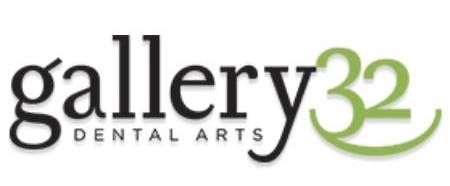![This is a thumbnail image of blog Everything About TMJ Disorders - Causes, Symptoms, and Treatment This is a thumbnail image of blog Everything About TMJ Disorders - Causes, Symptoms, and Treatment]()
Everything About TMJ Disorders - Causes, Symptoms, and Treatment
Nov 16, 2023![TMJ Disorder in Atlanta, GA TMJ Disorder in Atlanta, GA]()
The Importance of Early Diagnosis and Treatment of TMJ Disorder
May 29, 2024![This is a thumbnail image of blog Sudden Tooth Pain? Here’s What Might Be Causing It This is a thumbnail image of blog Sudden Tooth Pain? Here’s What Might Be Causing It]()
Sudden Tooth Pain? Here’s What Might Be Causing It
Aug 23, 2023![This is a thumbnail image of blog What You Should Know About TMJ Disorder? This is a thumbnail image of blog What You Should Know About TMJ Disorder?]()
What You Should Know About TMJ Disorder?
Sep 25, 2023![This is a thumbnail image of blog TMJ Disorder: Symptoms, Causes, and Effective Treatment Options This is a thumbnail image of blog TMJ Disorder: Symptoms, Causes, and Effective Treatment Options]()
TMJ Disorder: Symptoms, Causes, and Effective Treatment Options
Feb 11, 2025

BLOG

Effective Stress Reduction Techniques for TMJ Disorder Sufferers
Are you tired of the constant pain and discomfort caused by TMJ disorder? We have all been there, desperately searching for relief from the relentless stress that this condition brings. TMJ (Temporomandibular Joint) disorder is a common condition that affects the joint connecting your jawbone to your skull. It can cause pain and discomfort in the jaw, face, neck, and shoulders. This disorder is also known as TMD (Temporomandibular Dysfunction), and it affects millions of people worldwide.
Understanding the Connection Between Stress and TMJ Disorder
Stress is a natural response to challenging or overwhelming situations and can manifest physically through muscle tension and clenching. This tension often affects the muscles in the face, including those responsible for jaw movement. When these muscles become tight and overworked due to stress, it can lead to inflammation and discomfort in the temporomandibular joint.
Additionally, stress can also lead to habits like teeth grinding or clenching, which puts extra pressure on the jaw joint. This repeated strain on the joint can cause damage over time and worsen TMJ disorder symptoms. Furthermore, chronic stress has been linked to an increase in inflammatory responses in the body. Inflammation plays a significant role in many chronic health conditions, such as arthritis and heart disease. Studies suggest that increased levels of inflammation may contribute to worsening TMJ disorder symptoms.
Effective Stress Reduction Techniques for TMJ Disorder Sufferers
Here are some proven stress reduction techniques that can help alleviate the symptoms of TMJ disorder.
- Meditation and Mindfulness:
Meditation and mindfulness practices have been proven to be highly effective in reducing stress levels. By focusing on your breath and being fully present in the moment, you can quiet your mind and release built-up tension in your body. This technique not only helps reduce stress but also promotes relaxation and improves overall mental well-being.
- Yoga:
Yoga combines physical movement with deep breathing exercises, making it an excellent stress-reducing activity for those with TMJ disorder. The gentle stretches and poses help release tension in the muscles surrounding the jaw joint, while controlled breathing promotes relaxation and reduces anxiety.
- Massage Therapy:
Massage therapy is another effective way to reduce stress for individuals with TMJ disorder. A skilled massage therapist can target specific areas of tension around the jaw joint, helping to relieve pain and promote relaxation throughout the body.
- Deep Breathing Exercises:
Deep breathing exercises are a simple yet powerful tool for reducing stress levels. When we are stressed or anxious, we tend to take shallow breaths, which can contribute to muscle tension in the jaw and neck. By practicing deep breathing techniques, you can release this tension and promote relaxation in the body.
- Progressive Muscle Relaxation:
Progressive muscle relaxation is a technique where you systematically tense and relax different muscle groups in your body. This helps release built-up tension and promotes overall relaxation. You can start by tensing and relaxing your facial muscles, including those around the jaw joint.
- Cognitive Behavioral Therapy (CBT):
Cognitive Behavioral Therapy (CBT) is a form of talk therapy that focuses on changing negative thought patterns and behaviors. It can be helpful for individuals with TMJ disorder who experience stress or anxiety related to their condition. Through CBT, you can learn coping strategies to manage stress and reduce its impact on your daily life.
Visit Gallery 32 Dental Arts at 3580 Piedmont Road NE, STE #104, Atlanta, GA 30305, or call (404) 255-6929 to learn more about dental procedures. Our dentist will work with you to help you determine the best option for your condition.
Office Hours
MON - THU7:30 am - 4:30 pm
FRIBy appointments only
SAT - SUNClosed






comments